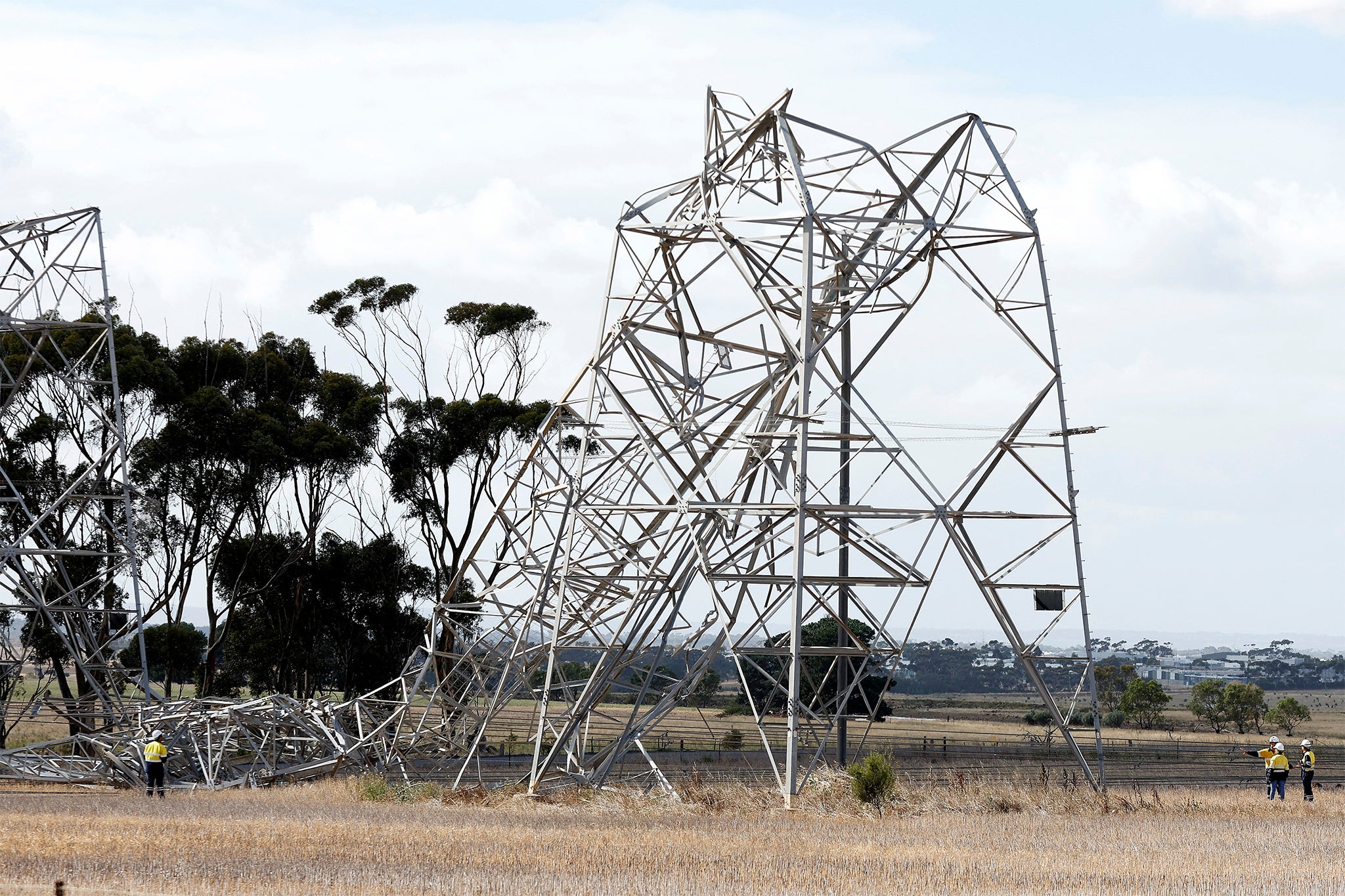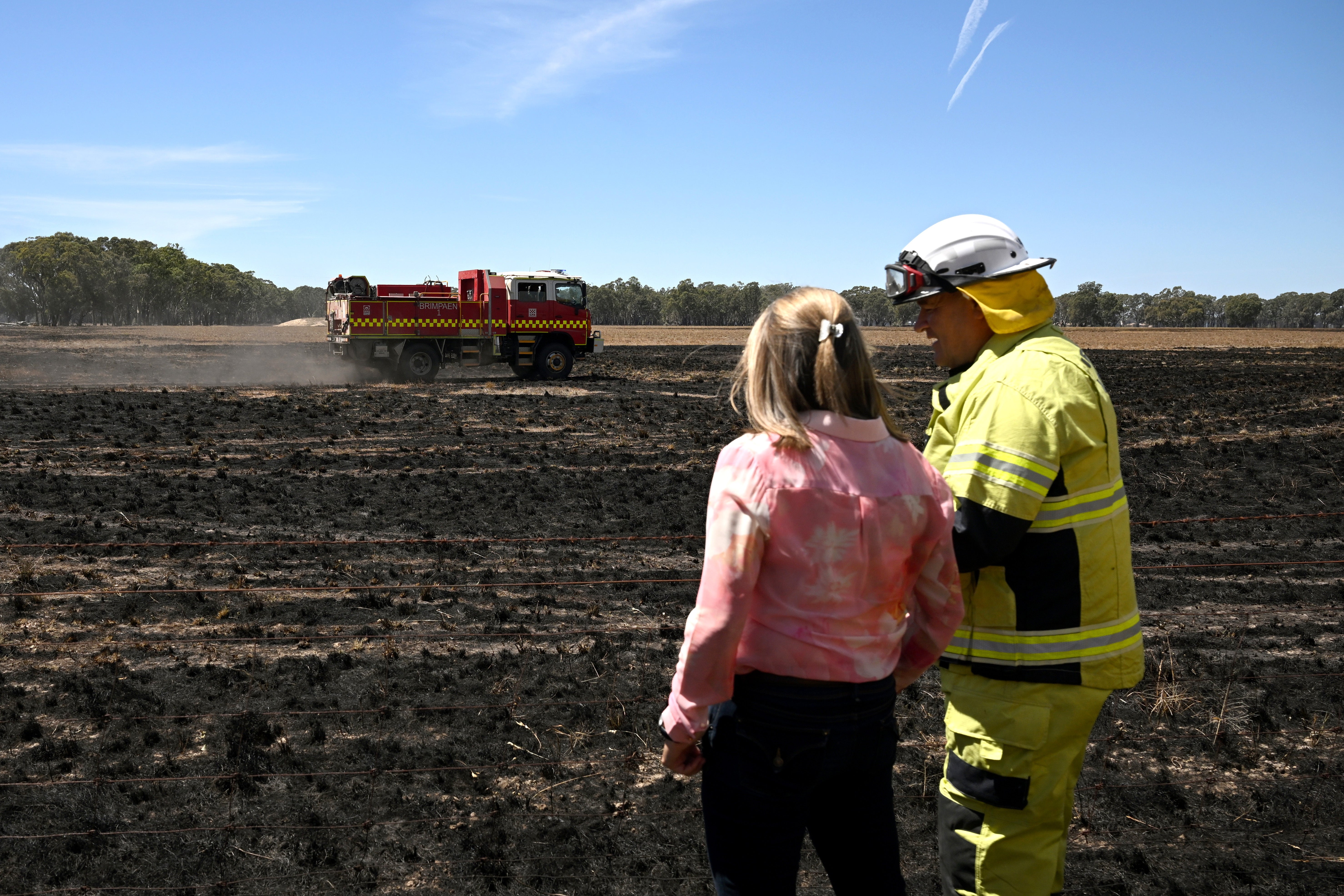Town wiped out as bushfires rip through state of Victoria
Bushfires broke out in southeast Australia as temperature hit 104F
Your support helps us to tell the story
From reproductive rights to climate change to Big Tech, The Independent is on the ground when the story is developing. Whether it's investigating the financials of Elon Musk's pro-Trump PAC or producing our latest documentary, 'The A Word', which shines a light on the American women fighting for reproductive rights, we know how important it is to parse out the facts from the messaging.
At such a critical moment in US history, we need reporters on the ground. Your donation allows us to keep sending journalists to speak to both sides of the story.
The Independent is trusted by Americans across the entire political spectrum. And unlike many other quality news outlets, we choose not to lock Americans out of our reporting and analysis with paywalls. We believe quality journalism should be available to everyone, paid for by those who can afford it.
Your support makes all the difference.More than two dozen homes have been destroyed by raging bushfires in the state of Victoria, Australia, with recent storms intensifying the blazes.
Extreme weather hit the state this week exacerbating the fires, authorities confirmed, knocking down trees and power lines. It caused a major power failure in the state with over half a million houses in a blackout.
Still over 60,000 homes across the state remain without power for two days.
The temperature hit 40 degrees Celsius (104F) in the state with two bushfires breaking out on Tuesday.
Fire authorities have confirmed 25 homes were destroyed after bushfires swept through the Grampians National Park this week.
Twenty-four homes were lost at Pomonal town, and one at Dadswells Bridge.
“The town has from all accounts been razed – there is not much left in large parts of Pomonal, so today is going to be an incredibly stressful day for a lot of people,” local MP Emma Kealy said, according to The Age.
The Victorian premier, Jacinta Allan, warned the number of homes lost in the fires could rise as she visited the town on Thursday.
“There is an expectation that number could go up a little ... as the assessments are finalised,” she said.

The premier thanked residents for heeding emergency warnings earlier this week and evacuating well ahead of the fire front.
“It could have been so much worse. I want to thank the local community for that very, very strong response. And also to, again, thank all the emergency services, volunteers and workers who have worked around the clock.”
Emergency Management Commissioner Rick Nugent said residents of Pomonal should be able to return to their homes late on Thursday afternoon.
While the threat of fire had eased, he warned the season was not over yet.
“We will have increased weather conditions going forward,” he said.

Speaking of power outages, Ms Allan said “there’s obviously still a way to go”, reiterating that most outages were due to storm damage to the transmission system rather than any shortage of supply.
Australia is the most fire-prone country on Earth due to its generally hot and dry climate. Fire services respond to between 45,000 and 60,000 bushfires in Australia each year.
In November, authorities warned that Australia faces an increased risk of bushfires during the summer due to the El Nino weather pattern.

Join our commenting forum
Join thought-provoking conversations, follow other Independent readers and see their replies
Comments